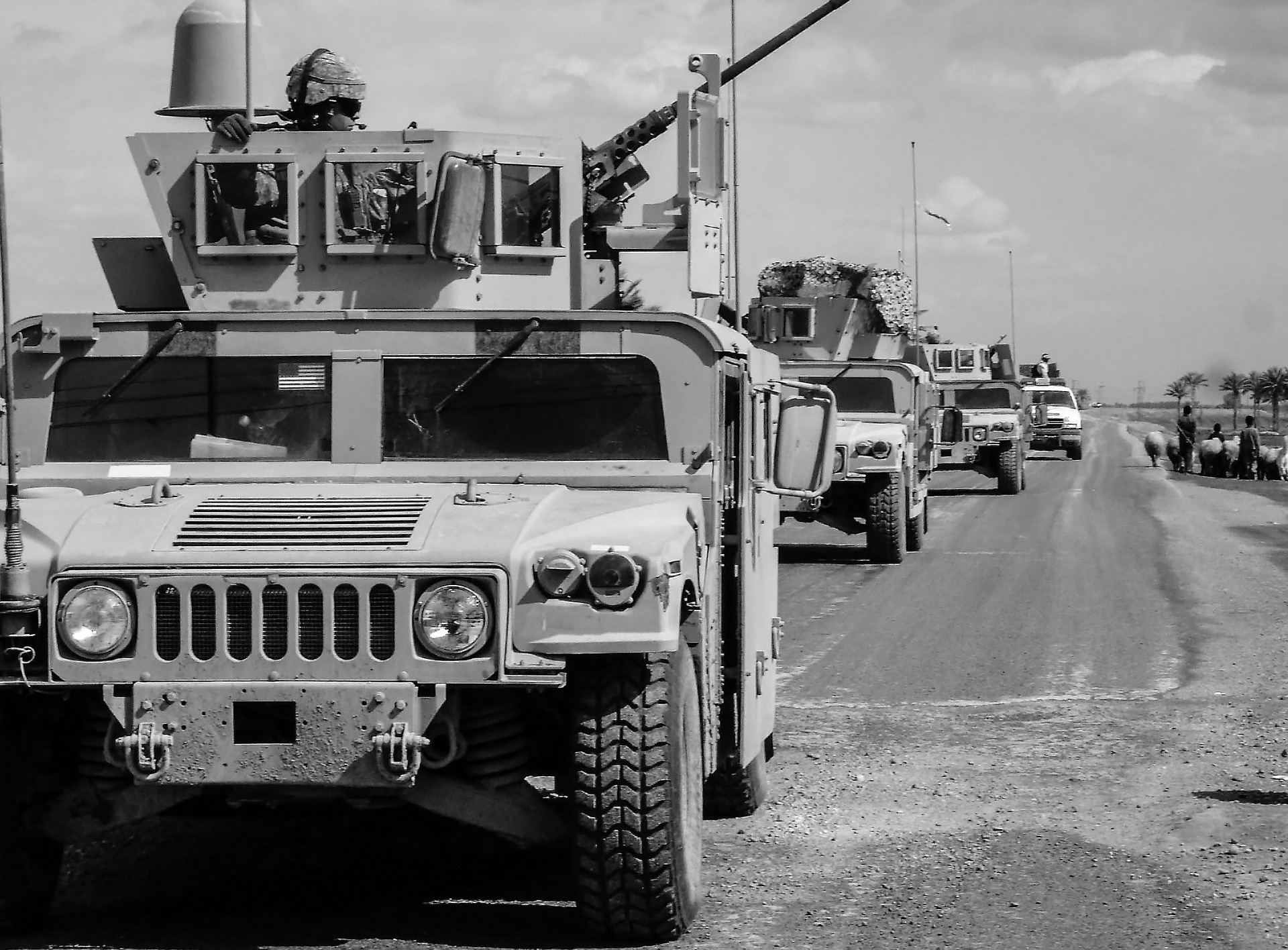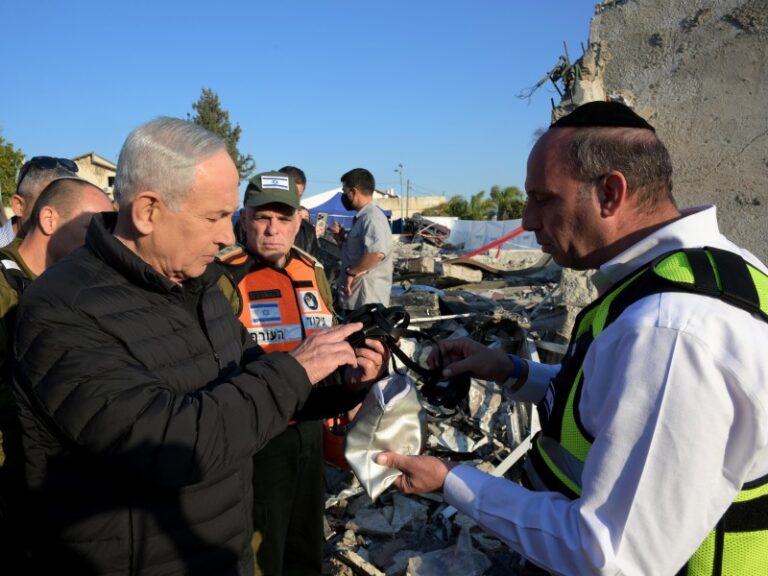
New York: The rocket attack on Erbil in northern Iraq on Monday night in which a contractor with the American-led military coalition was killed and six others were injured, and reports of Iran-backed militias conducting the attack had its resonance at the United Nations.
The USA told the United Nations Security Council on February 16, 2021, that while it supported a strong partnership with Iraq to, among other things, strengthen regional relations and counter-terrorism strategies, it intended to help prevent a resurgence of ISIL while promoting stability, including by supporting credible and inclusive elections to be held in October. It stated that the current report on the elections highlights Iraq’s complicated landscape, including the presence of militias and violent extremists, he noted, emphasizing that the United Nations Assistance Mission for Iraq (UNAMI) and the Government of Iraq must, among other things, address Iran-backed militias and other deadly threats. Outraged at Monday’s deadly rocket attack and other acts of violence, the USA pledged support in identifying the perpetrators and holding them accountable.
Condemning the attack, while the UN Secretary-General’s Special Representative for Iraq, Jeanine Hennis-Plasschaert, during a videoconference briefing today, told the Security Council members on the incident and warned that “such reckless attempts to inflame tensions pose grave threats to Iraq’s stability”, Stéphane Dujarric, Spokesman for the Secretary-General told media persons that the Secretary‑General fully backed what his Special Representative said at the Security Council. “He (UN Secretary-General António Guterres), of course, deplores these attacks. He condemns these attacks. These attacks are also an attack on the stability of Iraq, and it is important that all forces in Iraq support the stability of their country, and that goes for all those Member States who have an influence on what is going on in Iraq,” Dujarric said in response to a specific question about the reports of Iran-backed militia’s role in the attack.
Jeanie told the Council members that Iraq had arrived at a critical crossroads, requiring decisive concerted action to eradicate lingering terrorist threats ahead of national elections in the country. “Iraq must build its domestic resilience and be shielded from rivalries,” she emphasised.
Noting that the Council of Ministers in Iraq had called for elections to be held on 10 October, four months later than originally planned, she said the authorities had already taken steps to register candidates and voters. However, Parliament had not yet finalised the outstanding Federal Supreme Court law, and further delays were unacceptable, she emphasised, calling upon all parties, stakeholders and authorities to come together, agree on a code of conduct and allow all candidates to operate freely, irrespective of ethnicity, gender, language, religion, belief or background.
Moreover, agreement on the 2021 budget law required reconciliation and compromise between federal Iraq and the autonomous Kurdistan region, she said, underlining the absolutely essential need for a positive, stable relationship between Baghdad and Erbil for the stability of the entire country.
Emphasising that the Government of Iraq could not rest on its laurels regarding the presence of violent extremists, she recalled last night’s deadly rocket attack on Erbil, and the December 2020 suicide bombing that killed 32 people and injured more than 100 in Baghdad.
“All stakeholders must do their part to boost Iraq’s resilience so as to thwart security threats against a worrisome backdrop complicated by the COVID-19 pandemic and the possible resurgence of Islamic State of Iraq and the Levant (ISIL/Daesh),” she stressed.
On a related note, she said that about 30,000 Iraqis reside in the Al-Hol camp in Syria, including a number of non-ISIL-affiliated humanitarian cases. Describing Al-Hol as a ticking time‑bomb, she warned that, if it goes off, the impact will be immense. Iraq has a responsibility to take back its citizens, she said. Cautioning that spoilers, domestic and external, continue to confuse the scene, she underscored the importance of establishing stable security structures without further delay.
Returning to the issue of elections, she said for credible elections to take place, it was imperative that parties and candidates operated in a free and safe environment. Jeanine warned, recent incidents were “highly troubling, to say the least”, and stressed that credible polls required the collective effort and commitment of all Iraqis.
For elections to be trusted, unfounded theories must be disproved, baseless accusations refuted and intimidation replaced with accountability, she said, and emphasized that transparency must rule and loyalties cannot be for sale.
Iraq continues to experience acute financial and economic difficulties, as reflected by the exceptional currency devaluation, even as oil revenues have increased by 40 per cent since November 2020, providing some “breathing room”. Jeanine said little had been done to implement much-needed reform at a time when Iraq could afford neither continued dependence on resource extraction, nor the excessive burden of an outsized public sector. Fighting economic and political corruption, promoting robust governance, transparency and accountability must all be the watchwords accompanying reform, she stressed.
Recalling Iraq’s request that the Council facilitate electoral observation, she stressed that, no matter what the response, the elections will be Iraqi-led and Iraqi-owned at all times. Credible elections require a collective, concerted, timely and transparent effort, with all parties, authorities and stakeholders assuming their respective responsibilities in the service of the people, she said, and pointed out that transparency, justice and accountability remained largely absent, particularly in relation to repression of public protests throughout the country, including Kurdistan.
“If that does not change, public anger will erupt yet again, sooner or later,” she warned, and told the Council members that Iraq must also address violent extremism. She underlined that strengthening safety and security was as much about addressing its root causes as it was about the immediate ability to respond to threats on the ground, like the recent targeted attacks.
Turning to the humanitarian situation and the plight of internally displaced persons, she reported that camp closures had been ongoing for the past three months and the possibility of further closures was imminent. However, the haste and opacity surrounding such decisions were of great concern, she said, warning against decisions that could easily precipitate another crisis.
“Closing camps cannot be an objective in and of itself,” she stressed. Instead, according to her, the focus must be on safe and dignified measures to solve displacement.
The representative of Iraq at the UNSC, meanwhile, said the Iraqi government had worked to restructure the security forces, end impunity and enhance accountability for those involved in injuring or killing protestors, besides fighting terrorism and ensuring the safe return for displaced persons. Condemning targeted attacks on Erbil and other places, he reiterated Iraq’s commitment to the better use of security forces while continuing to implement relevant Council resolutions. “Going forward, Iraq needs help to boost capacity‑building and infrastructure, to rebuild in areas liberated from ISIL and to establish a national counter-terrorism centre,” he said and informed that steps had been taken by Iraq to issue identification papers to internally displaced persons, and that more than 40 camps had been closed and others were slated for closure.
“More than 30,000 displaced persons have returned to their communities, and Iraq and the International Organisation for Migration (IOM) were implementing a plan to reconstruct demolished homes,” he said. He further informed that that Iraq was engaged in dialogue with the Kurdistan Regional Government on issues from borders and budgets.
Concerning the COVID-19 response, he said assistance from international agencies had facilitated support for cash transfers, health sector initiatives and medical responses.
– global bihari bureau





